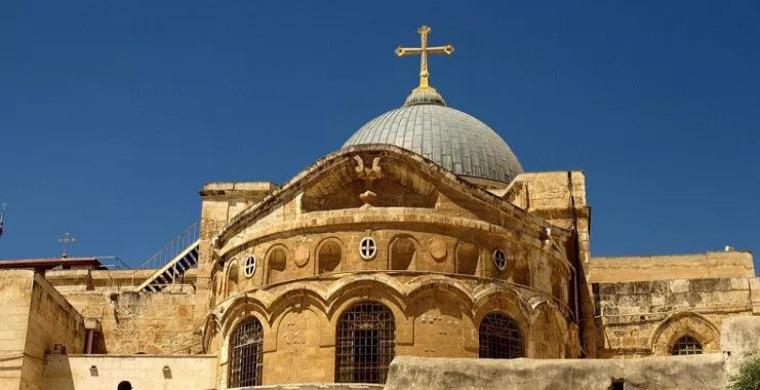How Politics Created an Unnecessary Dispute between Jerusalem Churches and the Israeli Government
https://mosaicmagazine.com/
March 12 2018
On February 25, the Greek Orthodox, Franciscan, and Armenian clergymen who jointly control Jerusalem's Church of the Holy Sepulcher took the unprecedented decision of closing the church to protest the municipal government's plan to begin taxing church land--that is, the real estate that Christian churches own and rent out as a source of income, not the actual properties used for religious functions. Thanks to the intervention of Prime Minister Netanyahu, the parties have since reached a solution, and the church was reopened after three days. Amir Barkat explains how the dispute spiraled out of control:
The situation surrounding the lands threatens the Greek Orthodox patriarch Theophilos III's seat. . . . [T]o satisfy [his critics within the church and without], he bashed Israel. He launched an international campaign, meeting with various world leaders and accusing Israel of persecuting Christians. I am of the opinion that he does not believe his own condemnations of Israel. . . .
To understand what is behind the controversy, one must understand the land issue. On some of the church lands in Jerusalem (especially those held by the Greek Orthodox patriarchate), residential neighborhoods were built after the lands were leased by the church to the Jewish National Fund (JNF). In recent years, the Greek Orthodox church decided to sell the land. This is a highly sensitive and very political issue. The church's previous patriarch, Irenaios I, was unseated after he carried out such a move. Once news spread that the current patriarch, Theophilos III, was offering land for sale as well, various elements within the Greek Orthodox church began to protest and thus threaten Theophilos [who promptly bashed Israel].
These elements identify completely with the pro-Palestinian movement [and] with the Joint Arab List [in the Knesset], which are coordinating their actions with their allies in the Palestinian Authority and Jordan. In addition to their political opposition to selling land to Jews, they also criticized the low prices at which lands were [previously] sold in order to gain support among an Arab public that does not necessarily identify with their political line. . . .
Over the last five years, there is a process under way within the Christian Arabic-speaking community of integrating into Israeli society and enlisting in the IDF or in national service, [offered by the Israeli government as an alternative to conscription]. . . . It should be self-evident that the current dispute harms such positive developments.














